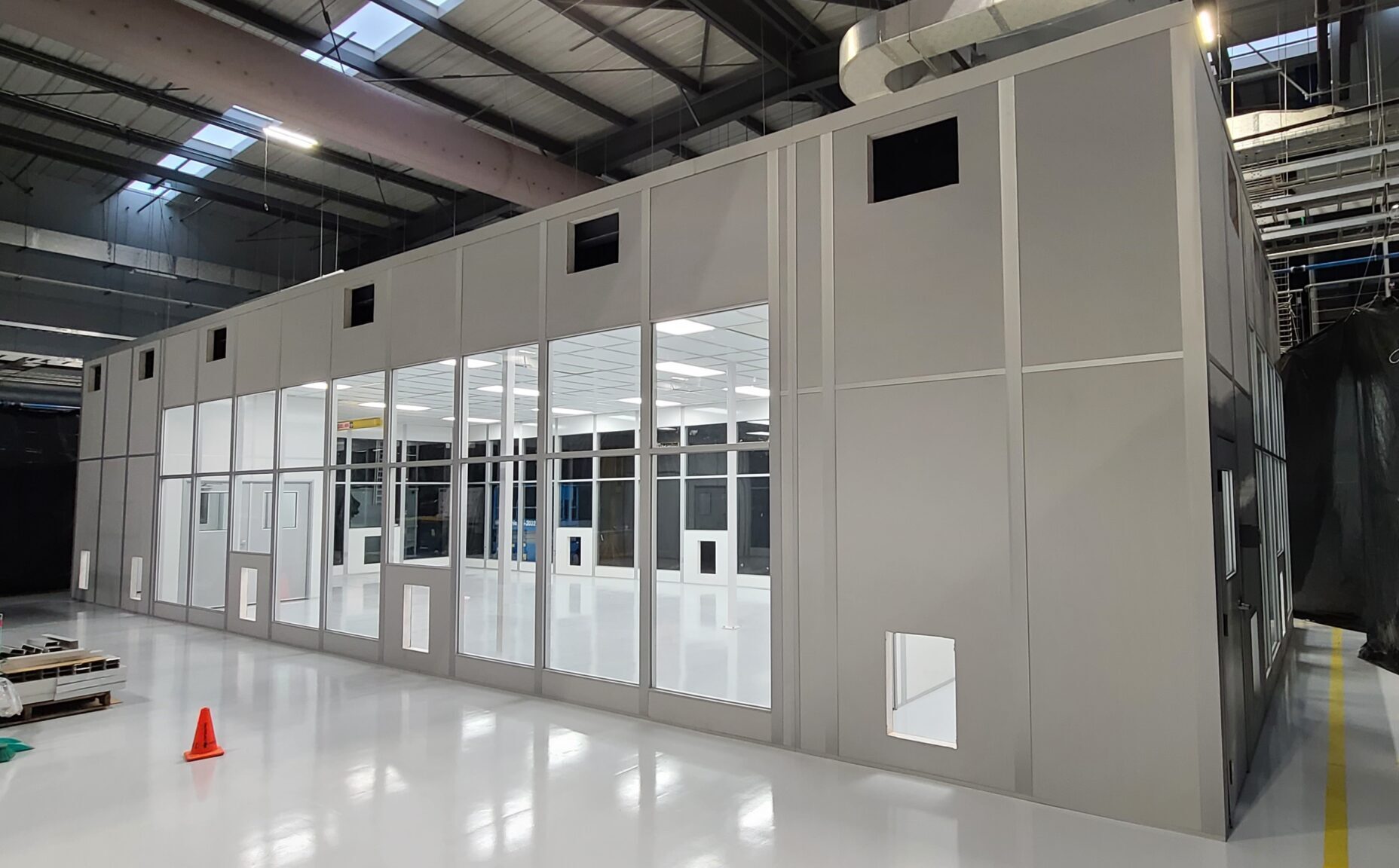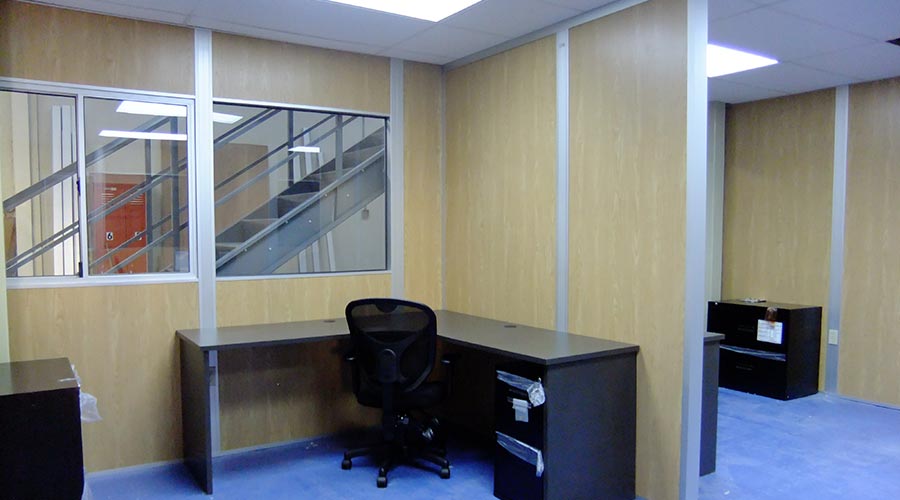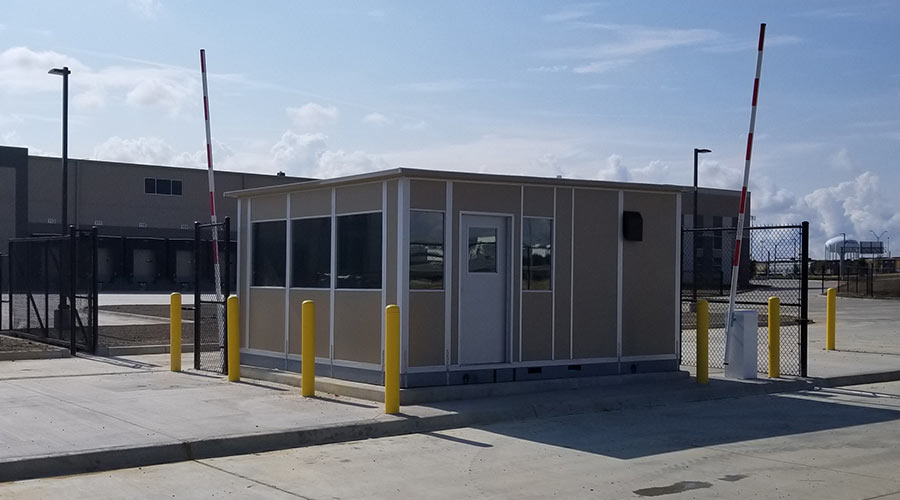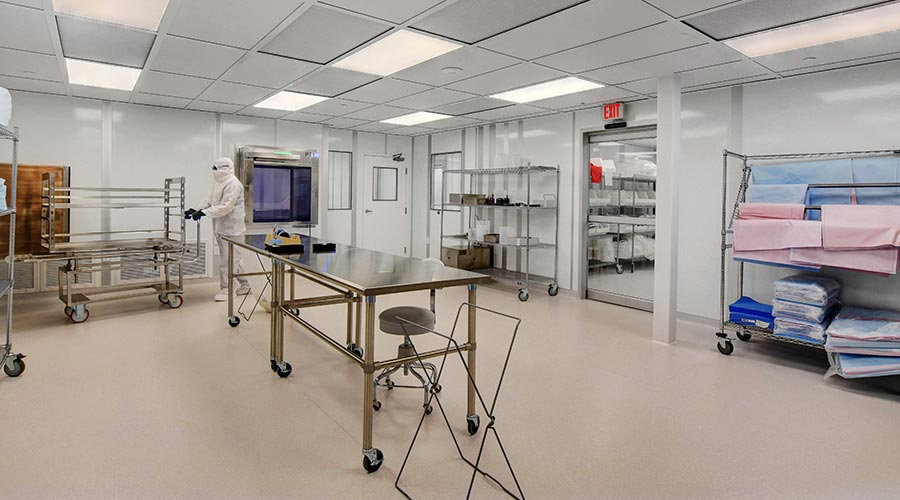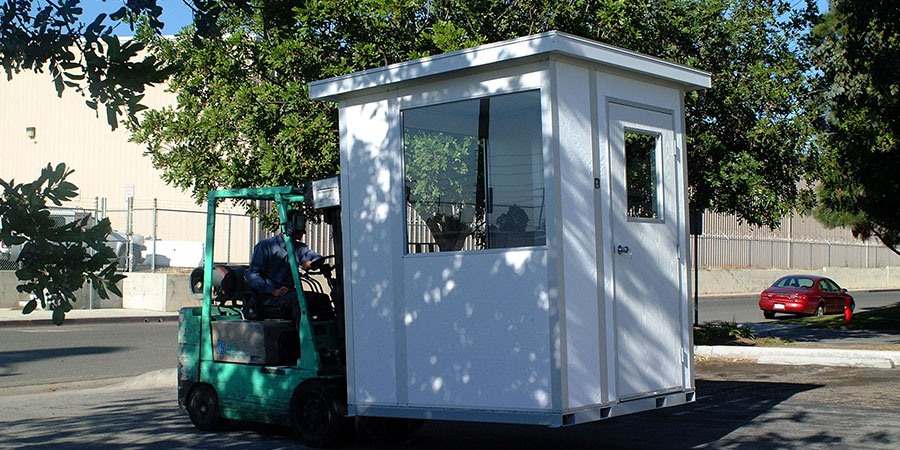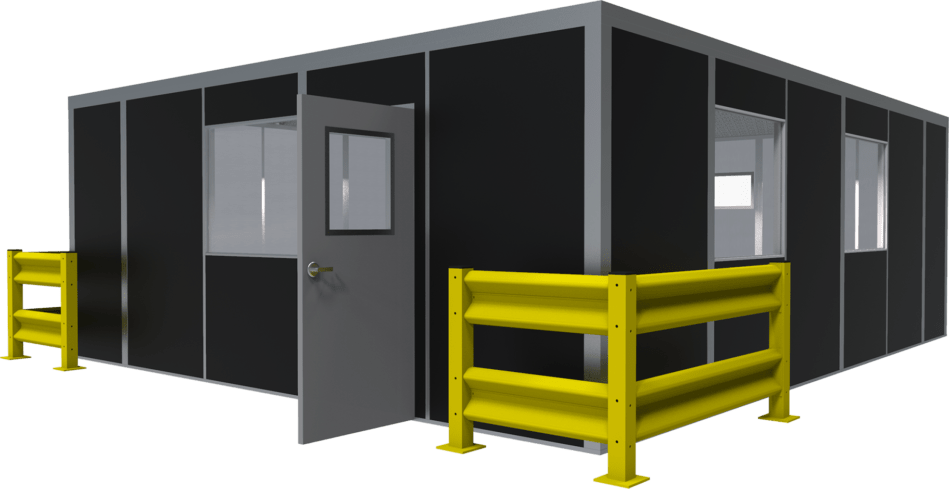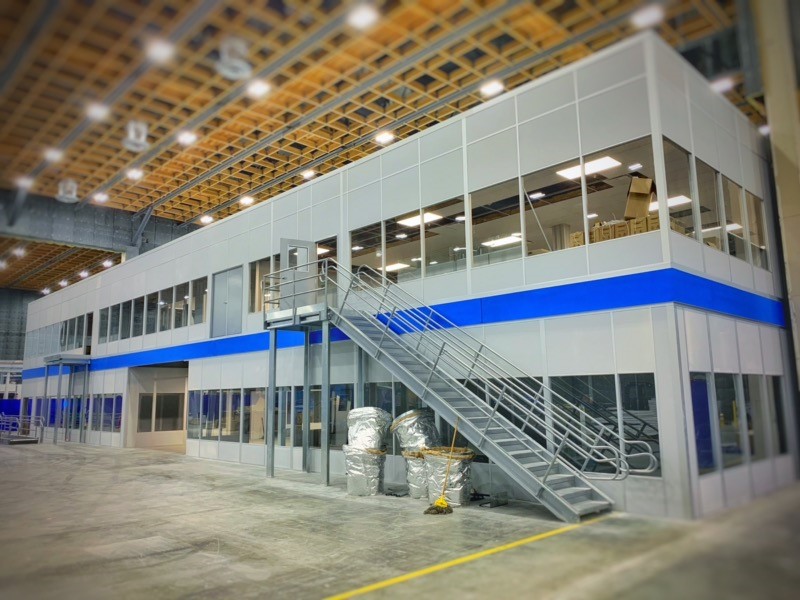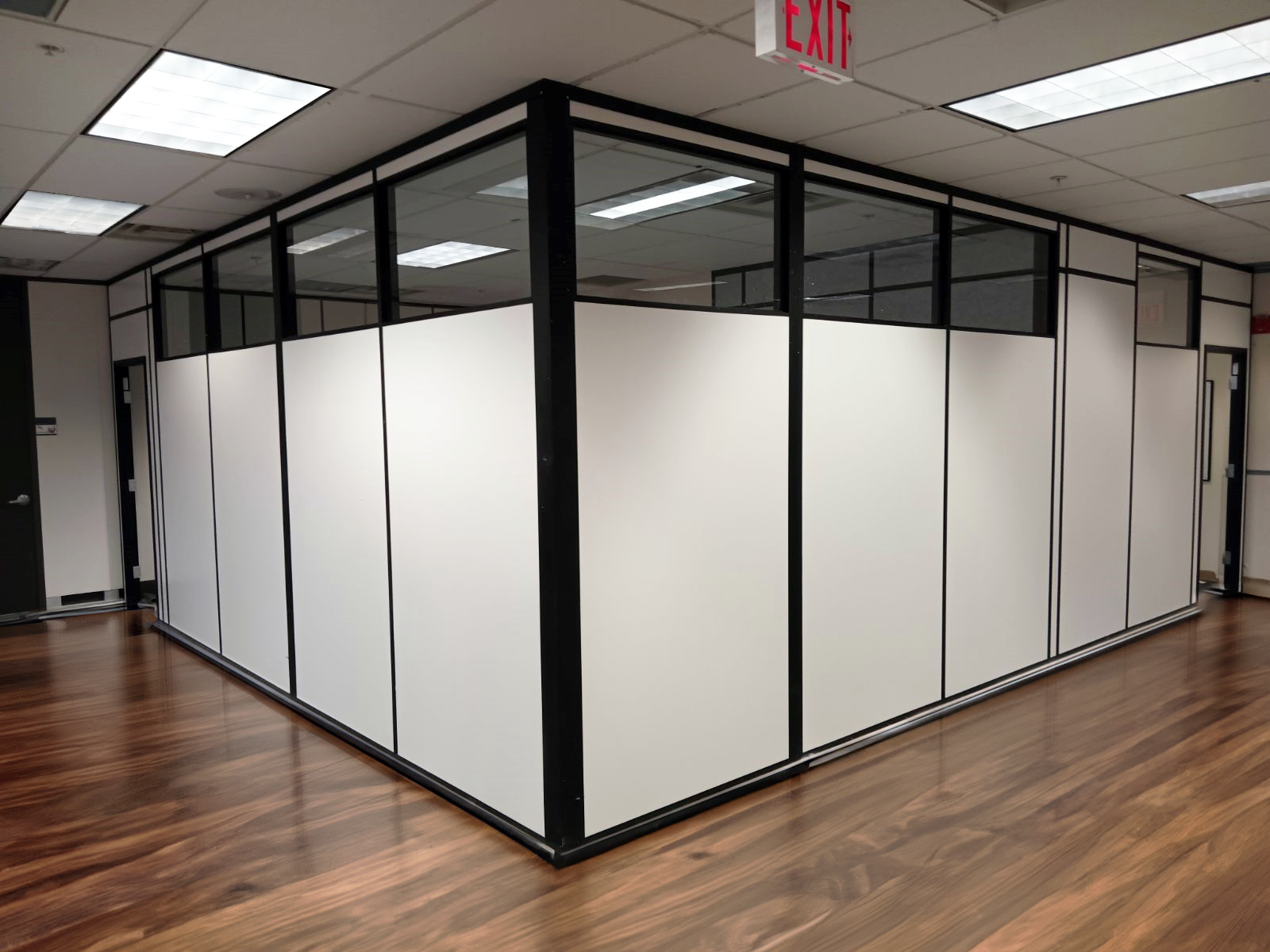In the United States, interest in modular applications is increasing rapidly because they are both practical and low cost. This is because modular walls come without the permanence or expense of traditional, “stick-built” construction. In this article, we’ll go over what a modular wall is, the types and applications of these walls, the common materials used, and their main benefits.
What is a Modular Wall?
A modular wall is an adaptable partition designed to efficiently create or divide spaces. It is made of lightweight modules or parts that fit together to form a solid wall. Such walls are easily adaptable and used in a variety of both outdoor and indoor applications.
Types of Modular Walls
1. Office Partition Walls
In office spaces, modular walls can serve as both temporary and semi-permanent dividers. These walls expand workspace and can fit inside existing structures, such as warehouses, factories, and more.
2. Exterior Modular Walls
You can also use modular walls outside of offices. They can define boundaries, enclose outdoor areas, or create private spaces in commercial or public environments. Even though these wall systems are flexible, they are able to withstand harsh weather.
3. Specialized Applications
Whether you need a guard shack, cleanroom, or sound booth, modular walls offer solutions for virtually any application. The possibilities are limitless, making it impossible to list them all here.
Materials Used in Modular Walls
Manufacturers use a variety of materials to make modular walls, selecting each for its use, strength, or look. This range of options allows these walls to be adapted for different purposes. This list is not exhaustive, but here are a few materials that we use at Allied Modular:
Wall Finishes
- Gypsum Vinyl: Vinyl-covered gypsum is smooth, strong, and easy to clean and maintain.
- Composite: Wall finishes may be made from a variety of materials such as wood, plastic, and metal.
- Steel Coated: Steel coating is durable and may also improve fire safety, as it is non-combustible.
- Hardboard Vinyl: This finish mixes the strength of hardboard with the flexibility of a vinyl coating.
- Plastics/FRP (Fiberglass Reinforced Plastic): These finishes are best suited for moisture-prone areas. They are known for their corrosion resistance and low maintenance.
- Aluminum: Lightweight and sturdy, these finishes are chosen for their rust resistance and modern look.
Framing
- Aluminum Framing: Aluminum is often used for the frames of modular walls due to its strength and lightweight.
Panel Cores
- Polystyrene (Standard): A commonly used core material. Polystyrene is lightweight and has insulation properties.
- Polyisocyanurate: This material is known for its insulation ability and fire resistance.
- Honeycomb: These cores have exceptional strength, yet remain lightweight.
You can customize modular walls to meet a variety of needs, whether for maximizing fire resistance, sound resistance, or simply fitting into a design aesthetic. For more on materials, click here.
Benefits of Modular Walls
1. Flexibility
You can reconfigure modular walls easily to fit your needs. You can expand, downsize, or modify them without enduring long and costly construction. Plus, you can move them to a separate location since they are portable.
2. Low Cost
Choosing modular walls over traditional construction can lower costs significantly. They require less labor and materials, and the reduction in waste contributes to a greener building process.
3. Quick and Easy Installation
Modular walls can be installed quickly. Unlike traditional construction, which can take months, you can set up a modular wall in a matter of days. There’s no need to endure the usual construction noises and disruptions.
The Bottom Line
Modular walls have changed the way we use space. They are an affordable and flexible alternative to traditional construction, and they can create new areas in both personal and professional environments. Considering their quick setup and low cost, modular walls are perfect for anyone who needs to add space fast. Interested in going modular? Get a free quote from Allied Modular today.

